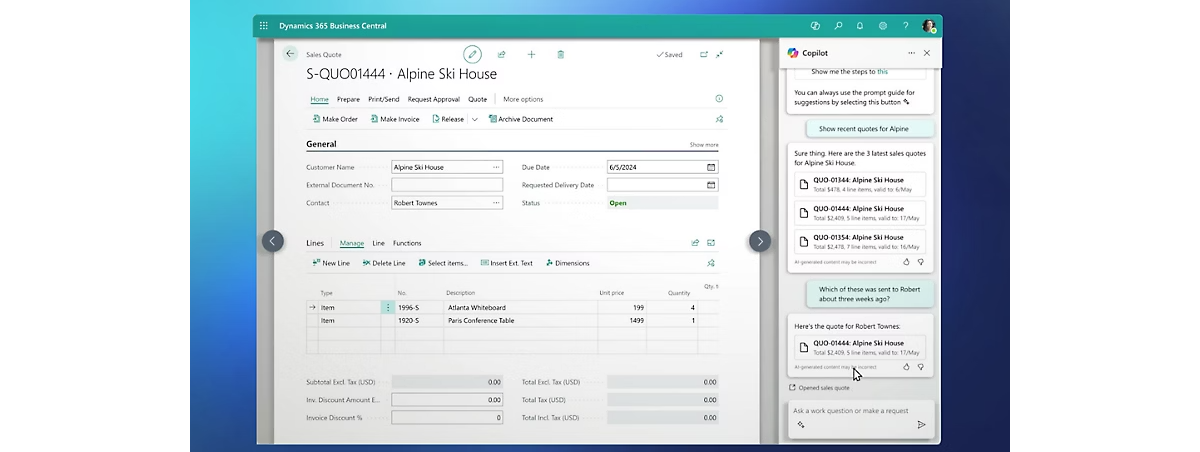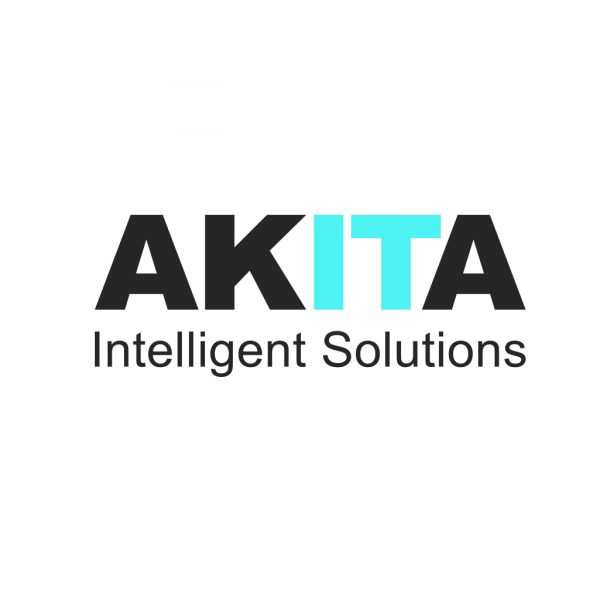Microsoft Dynamics 365 Business Central has rapidly become the go-to ERP solution for small to medium-sized enterprises worldwide.
According to Microsoft’s 2024 release wave notes, Business Central saw a 30% increase in active customers year-on-year, reflecting growing confidence in its capabilities as an all-in-one business management platform.
This growth is no coincidence. Businesses are migrating to Microsoft Dynamics 365 Business Central for a variety of strategic reasons. Chief among them being its cloud-native architecture, scalable design, advanced feature set, and its seamless integration with the wider Microsoft ecosystem. Business Central offers a modern, unified solution for managing everything from finance and supply chain operations to sales, customer service, and beyond.
Let’s examine the key drivers behind this mass migration.
A Cloud-Based Solution Built For Growth
One of the primary appeals of Business Central is its cloud-first approach. In a world where remote working, hybrid operations, and decentralised teams are now standard, the ability to access critical business data from anywhere is no longer a luxury—it’s essential. Business Central enables users to manage operations securely from any location with an internet connection, ensuring continuity and visibility across the organisation.
Beyond accessibility, scalability is a core advantage. As businesses grow, they need systems that can evolve in tandem. Business Central allows organisations to expand their functionality, user base, and integrations without overhauling their IT infrastructure. This adaptability makes it a future-ready investment, capable of supporting long-term growth strategies.
Enhanced Functionality For Real Operational Impact
Business Central is much more than a financial system.
While its roots lie in accounting (as the successor to Dynamics NAV), it has evolved into a fully-fledged enterprise resource planning (ERP) platform. It covers all core areas of business management—including finance, inventory, project management, procurement, manufacturing, and even light-touch CRM capabilities.
Key to its value is the system’s in-built intelligence. Business Central leverages robust reporting tools and embedded Power BI analytics, offering rich insights that help leaders make smarter, faster decisions. Whether analysing cash flow, forecasting inventory needs, or tracking project profitability, users benefit from a data-driven approach.
Automation is another standout feature. Business Central reduces administrative burden by automating routine tasks—from invoice generation to stock level alerts—giving staff more time to focus on strategy, innovation, and customer service.
ERP Functionality Comparison: Business Central vs Competitors
| Functionality Area | Business Central | Sage 200 | NetSuite | SAP Business One |
| Financial Management | ✔ Advanced, multi-entity & multi-currency | ✔ Solid UK accounting | ✔ Comprehensive, global-ready | ✔ Strong SME-focused finance |
| Inventory & Warehousing | ✔ Real-time tracking, bin & lot management | ✔ Basic inventory | ✔ Advanced with fulfilment | ✔ Detailed warehouse tools |
| Manufacturing | ✔ Light MRP, BOM, production orders | ✖ Limited support | ✔ Strong, with demand planning | ✔ Available with add-ons |
| Project Management | ✔ Time, cost & resource tracking | ✖ Minimal features | ✔ Full project lifecycle | ✔ Moderate project tools |
| CRM Capabilities | ✔ Built-in + integrates with Dynamics 365 Sales | ✖ Requires integration | ✔ Native CRM | ✔ Integrated, but basic |
| Business Intelligence | ✔ Embedded Power BI | ✖ Manual reporting | ✔ Analytics functionality | ✔ Crystal Reports included |
| Automation Tools | ✔ Power Automate integration | ✖ Limited | ✔ Workflow builder | ✔ Some automation rules |
| Integration Ecosystem | ✔ Deep Microsoft 365 & Teams integration, wider platform too | ✖ Siloed systems | ✔ API library | ✔ Standardised connectors |
| Scalability | ✔ High – from SME to enterprise | ✖ Better for static SME use | ✔ Enterprise-grade | ✔ Moderate scaling potential |
| Deployment Options | ✔ Cloud-first, optional on-prem | ✔ On-prem/cloud hybrid | ✔ Cloud-only | ✔ On-prem/cloud hybrid |
| Updates & Upgrades | ✔ Biannual automatic updates | ✖ Manual upgrades | ✔ Regular updates | ✖ Manual or partner-led |
✔ = Strong feature | ✖ = Limited or absent feature
As can be seen, a switch to Business Central offers a more complete and future-proof package than the likes of Sage 200 and SAP One, especially for businesses planning to scale or adopt advanced tools. It balances depth of functionality with ease of use, and its integration with Microsoft's productivity and collaboration tools gives it a competitive edge.
Seamless Integration With The Microsoft Ecosystem
For organisations already using Microsoft tools, Business Central fits in effortlessly. It integrates natively with Microsoft 365 (formerly Office 365), enabling users to access ERP functionality directly from familiar applications like Outlook, Excel, and Teams.
This close-knit integration creates a cohesive digital workspace. For instance, sales teams can generate quotes and update customer records within Outlook, while finance departments can analyse real-time data in Excel without the need for messy exports or manual reconciliation.
Moreover, Business Central benefits from Microsoft’s broader technology investments. Users can tap into AI capabilities, intelligent forecasting, and automation tools like Power Automate, all within the same ecosystem.
As Microsoft continues to invest in innovation, Business Central users can expect these advancements to be incorporated into their platform through regular updates—ensuring they remain at the forefront of digital transformation.

Boosting Efficiency And Reducing Costs
Business Central delivers measurable efficiency gains by consolidating core business functions into a single, unified system. This centralisation eliminates the need for multiple platforms and streamlines both operations and overheads.
Key operational and IT benefits include:
- Elimination of data silos: All departments access and input information within the same system, improving visibility and data accuracy across the business.
- Standardised workflows: Processes become more consistent, reducing errors and speeding up execution.
- Improved customer service: Faster internal processes mean quicker responses and better service delivery.
- Reduced IT costs: As a cloud-hosted platform, Business Central removes the need for on-premise servers, manual updates, and extensive infrastructure maintenance.
- Freed-up IT resource: Internal IT teams can shift focus away from firefighting system issues and towards more strategic initiatives.
The result is a leaner, more agile operation, with the added benefit of lower total cost of ownership.
A Modern, Future-Proof Platform
Beyond functionality, Business Central presents a modern, intuitive user interface that requires minimal training. This ease of use accelerates adoption across the workforce and reduces change management friction—an often-overlooked factor in successful digital transformation.
Microsoft also maintains a consistent release schedule, pushing out major updates twice a year, along with regular security patches and minor enhancements. This approach ensures that users are always working on the latest version, without disruptive re-implementations or licensing headaches.
For businesses concerned with cyber security, this continuous improvement model is especially reassuring. Microsoft’s enterprise-grade security protocols and automated patching mean threats are dealt with proactively, not reactively—minimising exposure and protecting data integrity.
Switch To Business Central: The Business Case
In essence, businesses are switching to Business Central because it brings together operational agility, cost efficiency, and digital maturity in one platform. It empowers organisations to modernise their processes, unlock strategic insights, and scale with confidence—all while staying tightly aligned with the Microsoft technologies they already rely on.
For growing businesses seeking a comprehensive ERP system that doesn't compromise on performance, flexibility, or innovation, Business Central offers a clear and compelling path forward.
Ready to consider Business Central? Reach out to Akita today:





